#ira aldridge
Text

Ira Frederick Aldridge, Miklos Barabas, 1853
#ira Frederick aldridge#miklos barabas#barabas#ira aldridge#1853#1850s#1800s#19th century#print#lithograph#art#portrait
44 notes
·
View notes
Photo

𝗜𝗥𝗔 𝗔𝗟𝗗𝗥𝗜𝗗𝗚𝗘 (1807-1867)
𝗜𝗿𝗮 𝗙𝗿𝗲𝗱𝗲𝗿𝗶𝗰𝗸 𝗔𝗹𝗱𝗿𝗶𝗱𝗴𝗲 𝘄𝗮𝘀 𝘁𝗵𝗲 𝗳𝗶𝗿𝘀𝘁 𝗔𝗳𝗿𝗶𝗰𝗮𝗻 𝗔𝗺𝗲𝗿𝗶𝗰𝗮𝗻 𝗮𝗰𝘁𝗼𝗿 𝘁𝗼 𝗮𝗰𝗵𝗶𝗲𝘃𝗲 𝘀𝘂𝗰𝗰𝗲𝘀𝘀 𝗼𝗻 𝘁𝗵𝗲 𝗶𝗻𝘁𝗲𝗿𝗻𝗮𝘁𝗶𝗼𝗻𝗮𝗹 𝘀𝘁𝗮𝗴𝗲. 𝗛𝗲 𝗮𝗹𝘀𝗼 𝗽𝘂𝘀𝗵𝗲𝗱 𝘀𝗼𝗰𝗶𝗮𝗹 𝗯𝗼𝘂𝗻𝗱𝗮𝗿𝗶𝗲𝘀 𝗯𝘆 𝗽𝗹𝗮𝘆𝗶𝗻𝗴 𝗼𝗽𝗽𝗼𝘀𝗶𝘁𝗲 𝘄𝗵𝗶𝘁𝗲 𝗮𝗰𝘁𝗿𝗲𝘀𝘀𝗲𝘀 𝗶𝗻 𝗘𝗻𝗴𝗹𝗮𝗻𝗱 𝗮𝗻𝗱 𝗯𝗲𝗰𝗼𝗺𝗶𝗻𝗴 𝗸𝗻𝗼𝘄𝗻 𝗮𝘀 𝘁𝗵𝗲 𝗽𝗿𝗲𝗲𝗺𝗶𝗻𝗲𝗻𝘁 𝗦𝗵𝗮𝗸𝗲𝘀𝗽𝗲𝗮𝗿𝗲𝗮𝗻 𝗮𝗰𝘁𝗼𝗿 𝗮𝗻𝗱 𝘁𝗿𝗮𝗴𝗲𝗱𝗶𝗮𝗻 𝗼𝗳 𝘁𝗵𝗲 19𝘁𝗵 𝗖𝗲𝗻𝘁𝘂𝗿𝘆.
Ira Frederick Aldridge was born in New York City, New York on July 24, 1807 to free African Reverend Daniel and Lurona Aldridge. Although his parents encouraged him to become a pastor, he studied classical education at the African Free School in New York where he was first exposed to the performance arts. While there he became impressed with acting and by age 15 was associating with professional black actors in the city. They encouraged Aldridge to join the prestigious African Grove Theatre, an all-African theatre troupe founded by William Henry Brown and James Hewlett in 1821. He apprenticed under Hewlett, the first African American Shakespearean actor. Though Aldridge was gainfully employed as an actor in the 1820s, he felt that the United States was not a hospitable place for theatrical performers. Many whites resented the claim to cultural equality that they saw in African performances of Shakespeare and other European-authored texts. Realizing this, Aldridge emigrated to Europe in 1824 as the valet for British-American actor James William Wallack.
Aldridge eventually moved to Glasgow, Scotland and began studies at the University of Glasgow, where he enhanced his voice and dramatic skills in theatre. He moved to England and made his debut in London in 1825 as Othello at the Theatre Royal Covent Garden, a role he would remain associated with until his death. The critic reviews gave Aldridge the name Roscius (the celebrated Roman actor of tragedy and comedy). Aldridge embraced it and began using the stage name “The African Roscius.” He even created the myth that he was the descendant of a Senegalese Prince whose family was forced to escape to the United States to save their lives. This deception erased Aldridge’s American upbringing and cast him as an exotic and almost magical being.
Throughout the mid-1820s to 1860 Ira Aldridge slowly forged a remarkable career. He performed in London, Liverpool, Edinburgh, Bath, and Bristol in King Lear, Othello, Macbeth, and The Merchant of Venice. He also freely adapted classical plays, changing characters, eliminating scenes and installing new ones, even from other plays. In 1852 he embarked on a series of continental tours that intermittently would last until the end of his life. He performed his full repertoire in Prussia, Germany, Austria, Switzerland, Hungary, and Poland. Some of the honors he received include the Prussian Gold Medal for Arts and Sciences from King Frederick, the Golden Cross of Leopold from the Czar of Russia, and the Maltese Cross from Berne, Switzerland.
Aldridge died on August 7, 1867 while on tour in Lodz, Poland. He was 60 at the time of his death. Aldridge had been married twice and left behind several children including a daughter named Luranah who would, in her own right, go on to become a well-known actress and opera singer. There is a memorial plaque at the Royal Shakespeare Theatre in Stafford-upon-Avon, in honor of his contributions to the performing arts. In 2014 a second plaque was unveiled in Lodz, Poland to honor his memory and legacy
#african#african american#kemetic dreams#brown skin#senegalese#ira aldridge#shakespeare#othello#macbeth#venice
142 notes
·
View notes
Text
youtube
youtube
#lindsay holiday#tea time with lindsay holiday#history#louise marie therese#ignatius sancho#joseph bologne#olaudah equiano#dido elizabeth belle#jean amilcar#alexandre dumas#Youtube#sara forbes bonetta#ira aldridge#mary seacole#pablo fanque#fanny eaton#samuel coleridge taylor#alemayehu of ethiopia
2 notes
·
View notes
Text
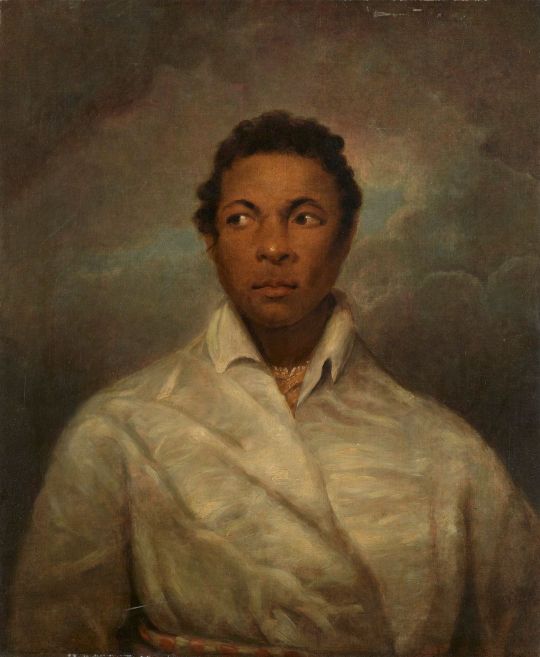
Ira Aldridge | James Northcote | National Portrait Gallery
6 notes
·
View notes
Video
youtube
2 notes
·
View notes
Text
This is likely not common knowledge, but there was actually an all-Black playhouse in New York City in the 1820s, the African Grove Theatre, that frequently performed Shakespeare!
#it only lasted about a decade or so#mostly due to continual harassment INCLUDING by the police#James Hewlett led the Company and was critically (and often regretfully) acclaimed for his roles in Shakespeare plays#and Ira Aldridge's career started there too!#history#if anyone wants a longer post about it let me know!
2 notes
·
View notes
Text
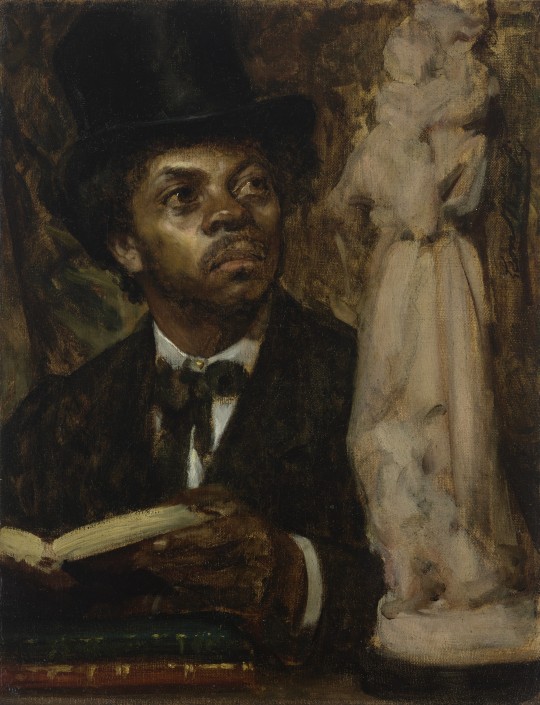
Léon Herbo - Portrait of an Art Connoisseur, possibly Ira Aldridge (1880)
515 notes
·
View notes
Text

LÉON HERBO (BELGIAN, 1850-1907)
Portrait of an Art Connoisseur, possibly Ira Aldridge
signed 'Leon Herbo' (vertically, center right)
oil on canvas
Christie’s
103 notes
·
View notes
Text
This is an Awfully Slim Book to Talk about Everything...
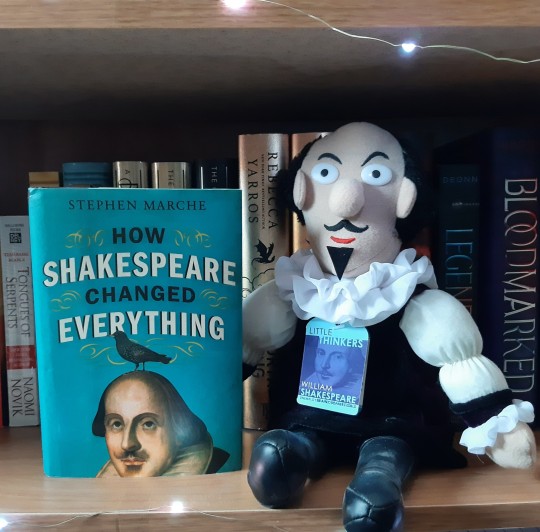
This book was a Christmas gift from my family a bunch of years ago, and to this day it's one of my favorite popular literary analysis books. The juxtaposition of this slim little tome and the big "EVERYTHING" in the title is enough of a visual tension to make you jump in. And I did. Voraciously. And repeatedly. And then when I started teaching and tutoring, this book was a huge help in that it was an unintimidating entry point into thinking about the Shakespearean corpus and its impacts on life. I even let one of my tutor students borrow this book, and I do NOT let people borrow my books. So let's talk How Shakespeare Changed Everything.
...do...do I...do I need to put a spoiler for Shakespeare here? I really hope I don't, but I guess SPOILERS BELOW THE BREAK?
I think the best way to do this is to just briefly go over each of the ten chapters of this book, because each one takes up and different topic and gives an overview of it.
The book's introduction introduces the conceit of the book and essentially reasserts that Shakespeare was the popular media of his day, before alluding to the power of popular media to change, well, basically everything. We also get just an amazing cross-section of some of the wilder ways people engage with the bard, including the Shakespeare Mas (google this or read the book, I promise you won't be disappointed). The introduction ends on this just incredible line: "All that strange power, all his world-shaking, reality-transforming impact begins from a simple but mysterious truth: His stories sound good to everybody." And honestly? I don't think I can disagree with that.
The Fortunes of the Moor
This phenomenal first chapter is a stunning overview of the performance history of Othello, and particularly highlights Paul Robeson and Ira Aldridge, two of the famous historical Black actors to play Othello. This chapter also speedruns the history of racism in American theatre, whether or not the play is racist, and the role of mixed-race sex in the play. This chapter is a fantastic introduction to both Othello and race in Shakespeare, and it grounds itself in performance history anecdotes that never fail to be fascinating.
Words, Words, Words
This chapter does not focus so much on a single play as it does on the words Shakespeare added to the English lexicon, and what the knock-on effects of those added words are. It also brings up two words that we just...straight up don't have definitions for: prenzie and scamels. This is a more linguistic-focused chapter, but it's still fun and has a ton of excellent examples of how to close read Shakespeare passages for linguistic purposes, and it's a fabulous teaching tool for that.
The Beast with Two Backs
Oh yeah. It's the sex chapter. Sex in Shakespeare is way more prevalent than school boards are aware of--as evidenced by the fact that not even the avid book banners in Florida in the year of our lord 2024 seem to have caught on to the fact that Shakespeare is transgressive AF and tried to ban him (as far as I know). This chapter explores how Shakespeare uses sex and sexuality, how people have tried to censor and liberate Shakespeare because of it, and author Stephen Marche asserts that, "If you've had sex without shame, sec for pleasure, for fun, for any reason other than procreation within marriage--Shakespeare, more than any other single figure, is responsible for the climate of permissiveness that made it possible." So I'm sorry if this is how you have to find out that Shakespeare is all about characters doing the sex at each other, but you cannot approach these plays without understanding that sex and sexuality are a huge part of the plays.
Flaming Youth
So strictly speaking, the word "adolescent" has been around since the Middle English period, and the OED cites the earliest instance of the word in 1440. That said, adolescence as we know it wasn't necessarily something that Shakespeare knew. That, of course, did not stop him from writing about teenagers. This chapter is all about teenagers, teen culture, and Shakespeare, and honestly this was the chapter that had my student asking me if he could borrow this book. If you are teaching teens and they're reluctant to see how Shakespeare relates to them, this is my recommendation for a short reading to change their minds.
All Honorable Men
In this chapter we focus back in on a specific play: Julius Caesar. This book predates the 2016, 2020, and 2024 US presidential elections, and this play and its relationship to US politics and presidents have been well trodden since, but this is still a solid look at how Shakespeare is inevitably tangled up in US politics and how we relate to them. We also get some super juicy details about John Wilkes Booth and his theatre career prior to the Sic Semper Tyrannis event. It also is a good entry point to how how Shakespeare uses (and abuses) political rhetoric in ways that are uncomfortable similar to modern politicians.
To Hold a Mirror Up to Nature
The moral of this chapter is to not use your fandom as an excuse to low-key commit ecological terrorism. *massively side-eyes Eugene Schiefflin*
Give Me My Robe, Put On My Crown
If "All Honorable Men" focused on US presidential politics, this chapter expands Shakespeare's political reach globally, showing how world leaders and politicians have used and appropriated Shakespeare for all sorts of purposes.
Not Marble, nor the Gilded Monuments
This is the English major chapter of this book. It does a beautiful job of beginning to contextualize Shakespeare's place in the western literary canon, and more than a few famous writers' relationships with him. It even gives a nod to Shakespeare's relationship with more modern popular culture (Shakespeare is best in the original Klingon, anyone?).
A King of Infinite Space
Previous chapters have been heavy and serious, which Shakespeare absolutely is. But that's not ALL Shakespeare is. This chapter focuses on the mundane and profane that is Shakespeare. It asserts that Shakespeare is anyone's who wants him, however they want him. And as a Shakespeare scholar who has herself been a bit of a snob in her younger years, this is an IMPORTANT reminder. Yes, Shakespeare is heady themes, tragedy, and important topics of discussion...but it's also three butt jokes in a trench coat that turns to the audience, farts, and immediately begins pelvic thrusting. A king of infinite space indeed...
To Be or Not to Be
This chapter explore Shakespeare, the man, the myth, the legend. Quite literally, because we don't really have all that much hard historical knowledge about Shakespeare, and his plays are such that trying to argue anything about the playwright from the plays is deeply problematic at least. There is also a really interesting discussion about the extant portraits of Shakespeare and which one Marche thinks might be the most accurate. This chapter is a wonderful reminder that Shakespeare is both man and myth, and the man and the myth have blurred and merged to become legend. (And this is why I straight refuse to play the author question game. It's not worth it.)
Overall, I adore this book. It's a great introduction to the breadth of the field of Shakespeare studies in a deeply accessible way. The writing and the tone are light, playful, and deeply entertaining. This is one of my FUN reads about Shakespeare, and I think that if high school or early college students want an accessible, fun way into the wider world of academic Shakespeare studies, they could do a lot worse than starting here.
#shakespeare#shakespeare studies#academic shakespeare#book review#books and reading#books#books and novels#book recommendations
4 notes
·
View notes
Text
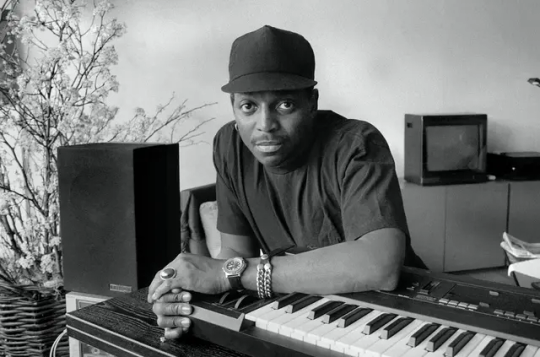



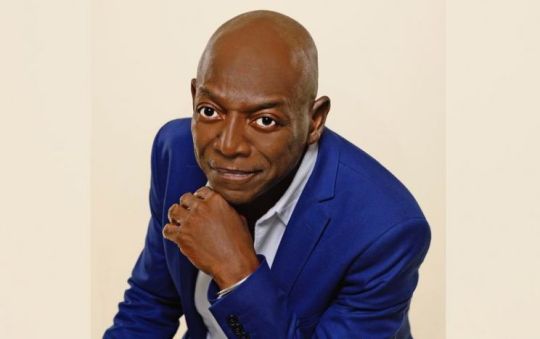
The great Hinton Battle passed away at Cedars-Sinai Medical Center in Los Angeles on January 30, 2024, at the age of 67.
Hinton Battle (November 29, 1956 – January 30, 2024) was an American actor, singer, dancer, and dance instructor. He won three Tony Awards, all in the category of Featured Actor in a Musical. He was the first to portray the Scarecrow in the stage version of The Wiz.
He also starred on Broadway in Dancin', Dreamgirls, Sophisticated Ladies for which he won his first Tony Award, Chicago (Billy Flynn), and Ragtime (Coalhouse Walker Jr.), which garnered rave reviews from the Chicago press and earned him an Ira Aldridge Award. His role in The Tap Dance Kid earned Hinton a second Tony Award as well as the NAACP Award and the Fred Astaire Award. He won his third Tony Award for Miss Saigon.
1 note
·
View note
Photo

Othello, The Moor of Venice, James Northcote, 1826
#Othello the moor of venice#othello#ira aldridge#James northcote#northcote#1826#1820s#1800s#19th century#portrait#painting#art#actor
90 notes
·
View notes
Text
Paul Robeson as Othello
Paul Robeson was the first Black actor to play Othello on Broadway, and one of the first Black actors to take on the role, period. (One notable early professional Othello would be Ira Aldridge's turn in 19th century London, but America was much more limited in opportunities for actors of color due to heaping piles of systemic, structural racism.)
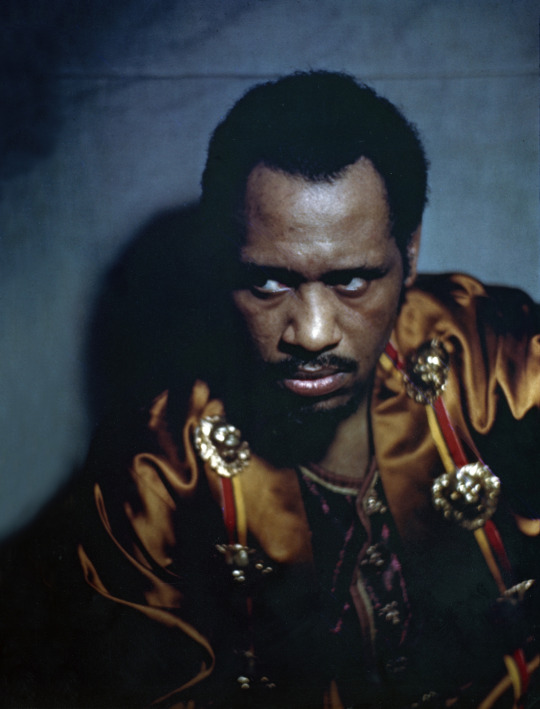
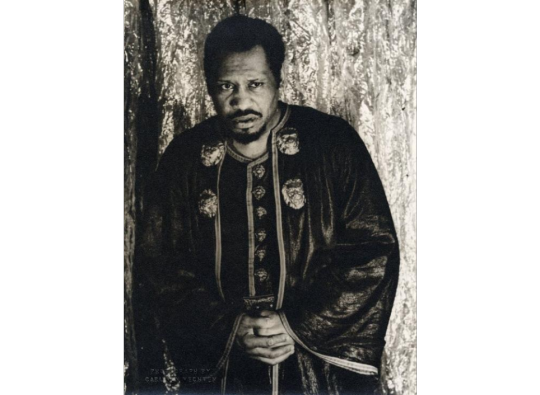
Here is the costume design for Paul Robeson as Othello, 1943, created by Robert Edmund Jones. (img courtesy Folger Shakespeare Library)
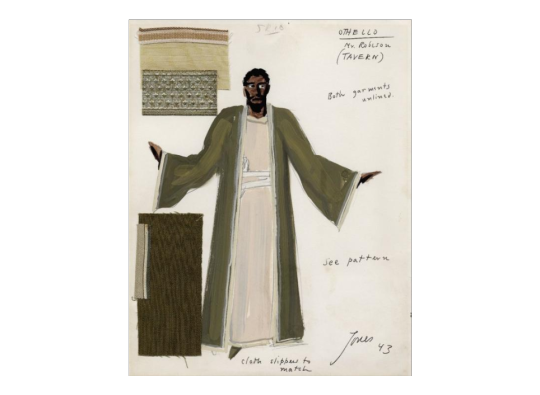

Paul Robeson first played Othello in London in 1930, and had expressed some trepidation about how the role would be received in America. His West End performance received racially-based negative reviews, and his co-star, Peggy Ashcroft, received death threats for kissing a Black man on stage.
Robeson rejected an offer to play Othello in 1937, choosing instead to sing at the front during the Spanish Civil War. He came away from that experience convinced that Othello spoke to a racially divided nation at war. “It is a tragedy of racial conflict.” he said in one radio interview. “Othello in the Venice of that time was in practically the same position as a coloured man in America today.”
Despite the London experience, and Robeson’s concerns, he agreed to the 1943 Broadway production. It would go on to be the longest-running Shakespeare play in the history of Broadway. (A record it still holds)
(Paul Robeson & Uta Hagan, courtesy of FSL)
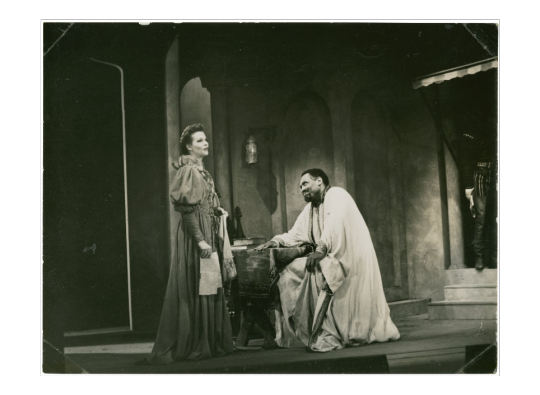
Poster for the production, courtesy of Harvard Theatre Collection
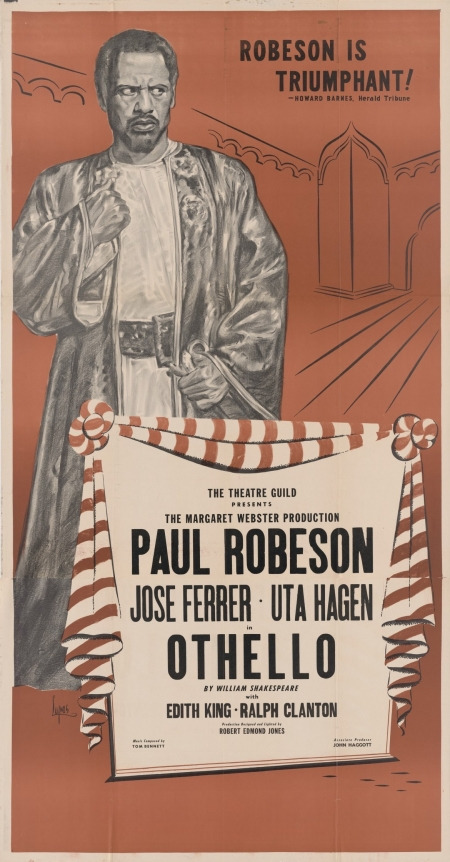

1 note
·
View note
Note
orchid, cactus, aloe vera
orchid ⇢ what’s a song you consider to be perfect?
out of my league by fitz and the tantrums; literally sarah-tone-in under the guise of a three minute song
cactus ⇢ something you’re currently learning (about)?
i've recently started reading up on ira aldridge! a black actor from the 1800s who, along with james hewitt, was consider the first black american tragedians.
aloe vera ⇢ what’s something (mundane) you really want to experience in life?
sharing an inside joke with the love of my life.
feel free to send me a lovely little ask (but only if you want to <3 )
3 notes
·
View notes
Photo
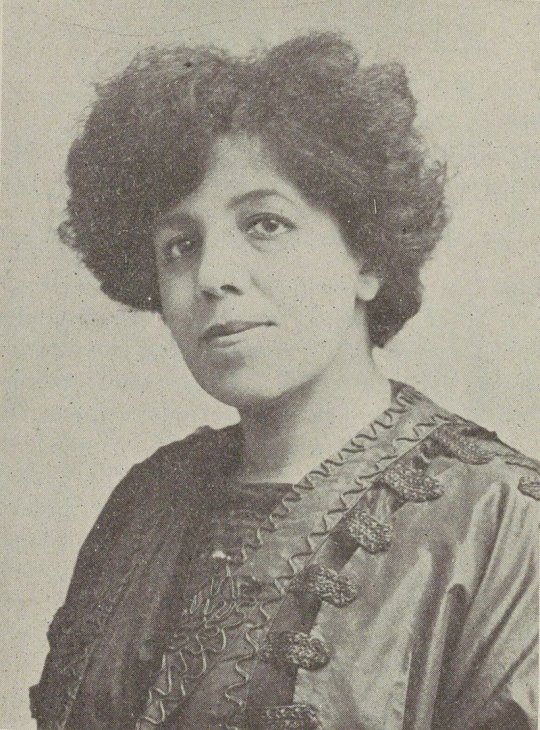


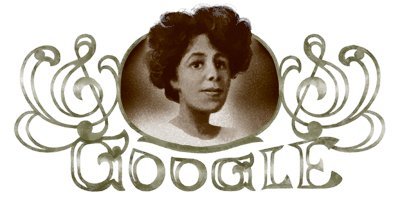
Amanda Christina Elizabeth Aldridge, also known as Amanda Ira Aldridge (10 March 1866 – 9 March 1956), was a British opera singer and teacher who composed love songs, suites, sambas and light orchestral pieces under the pseudonym of Montague Ring.
2 notes
·
View notes
Text

Red Velvet x Stanley Industrial Alliance Stage x South Granville. (via Moonrider Productions)
Arts Club's comedic drama, written by Lolita Chakrabarti and directed by Omari Newton, tells the true story behind the first Black actor (instead of a white man in blackface) to portray Shakespeare's Othello in 1833 London. Structured as a farcical play-within-a-play bookended with dramatic scenes in a later period Poland, the performances and direction are delightfully executed to highlight the sadly still relevant themes of racial equity and representation within the arts and high society.
Lindsey Angell as Ellen Tree and Quincy Armorer as Ira Aldridge.
Running live on stage now until Apr. 21.
#red velvet#othello#events#media#live theatre#features#reviews#live theater#theatre#theater#stage#play#vancouver#vancity#british columbia#lower mainland#south granville#granville#granville street
0 notes